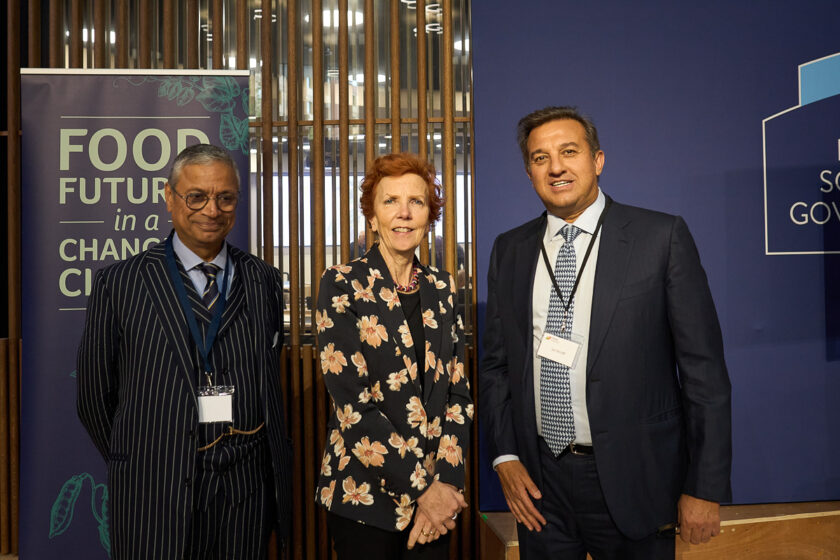The second edition of the OpenAg Symposium, hosted by the Oxford India Centre for Sustainable Development (‘OICSD’), Somerville College, University of Oxford, and UPL Ltd., a global provider of sustainable agricultural solutions, has outlined a series of policy positions, technological interventions, and financial models to transform food systems as positive contributors to global decarbonisation efforts.
The event united a select group of representatives from academia, policy, finance and the private sector under the theme ‘Food Futures in a Changing Climate: Reimagining the role of agriculture as a pathway to Net Zero.’ Following a keynote by Agnes Kalibata, President of the Alliance for a Green Revolution in Africa, panellists from Brazil, India, the United States, Italy, the Netherlands, and Kenya, proposed a series of policies and interventions to ensure future food systems are efficient, resilient, inclusive and sustainable.
This included calls for more supporters to join investors representing $14.59 trillion who are calling on the UN to produce a Global Roadmap to 1.5˚C, the creation of formal carbon framework for soil, and better and more transparent monitoring and measurement for all net zero initiatives within agriculture. On finance, panellists outlined the need for more enhanced financial models to de-risk new investment in sustainable agriculture, the importance of fairly incentivising and rewarding farmers for adopting sustainable practices, and the need for justice and equality to form key pillars across all climate interventions.

[Frpm left to right]: Senior advocate Mr Gopal Subramanium, Baroness Royall of Blaisdon, Principal of Somerville College, and Mr Jai Shroff, Global CEO of UPL Ltd
Jai Shroff, Global CEO of UPL, said:
“At UPL, we believe that agriculture has a decisive role to play on the path to decarbonisation during this crucial window for action in the fight against climate change. The discussions we’ve heard at this year’s OpenAg Symposium demonstrate the growing appetite for the innovation and cross-sector collaboration required to transform the climate-positive contribution of food systems around the world.”
Concluding the OpenAg Symposium, Baroness Royall, said:
“As we head towards COP27, the partnerships between academic institutions, policy makers, and private sector must be the linchpins of finding answers to the most pressing sustainability issues being faced around the world. Solutions are most found when disciplines align, and the discussions we have led today must be catalysts for more interdisciplinary conversations and commitments that will deliver the greatest impact on agriculture and sustainability.”
Recordings of the keynote and panels, as well as a full list of speakers can be viewed at: https://openag.some.ox.ac.uk/videos
The OpenAg Symposium Report 2022, detailing the findings of the conference, can be downloaded here: https://openag.some.ox.ac.uk/symposium-reports